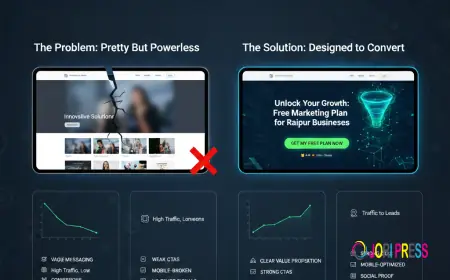Executive Employment Agreements: Safeguarding Careers with Strong Contract Terms
An executive employment agreement is a vital legal document that governs the relationship between high-level executives and their employers.

Executive Employment Agreement: A Critical Document for Your Career
An executive employment agreement is more than a job offer—it’s a legally binding contract that shapes your career trajectory, compensation, and future opportunities. Whether you're stepping into a new leadership role as a CEO, CFO, CTO, or other senior executive, understanding and negotiating your employment agreement is crucial. These agreements govern essential aspects such as salary, bonuses, equity, benefits, termination clauses, non-compete terms, and severance packages.
Securing strong terms can mean the difference between long-term success and serious setbacks. It is not just about compensation; it’s about protecting your professional value and ensuring that the terms of your employment reflect your level of contribution, experience, and potential liabilities.
Why Executive Employment Agreements Matter
Define Roles, Duties, and Expectations
A well-drafted agreement clarifies the executive's responsibilities, authority, and reporting structure. This clarity helps avoid future disputes and sets the tone for success within the organization.
Establish Fair and Competitive Compensation
From base salary to annual bonuses and long-term incentives, compensation must align with market standards and reflect your impact on the organization. Agreements also outline equity participation—stock options, restricted stock, or profit interests—that can form a significant part of your total compensation package.
Protect Against Unfair Termination
Executive roles often come with performance-based pressures. Employment agreements should specify what constitutes termination for cause versus termination without cause, along with associated rights to severance, equity acceleration, and other protections.
Key Components of a Strong Executive Agreement
Base Compensation and Benefits
The agreement should specify salary, signing bonuses, and access to retirement plans, health insurance, travel allowances, and other perks. It should also include provisions for cost-of-living adjustments or salary reviews.
Short-Term and Long-Term Incentives
Executives are frequently eligible for performance-based bonuses tied to KPIs, company revenue, or individual achievements. Long-term incentives such as stock options, RSUs (Restricted Stock Units), or phantom equity ensure alignment with the company’s growth and your personal wealth-building goals.
Equity Compensation
Equity is often the most valuable part of the executive package. The agreement should detail:
-
Type of equity (options, RSUs, performance shares)
-
Vesting schedules
-
Acceleration clauses in case of termination or company sale
-
Tax treatment of the grants
Severance and Termination Provisions
This section addresses scenarios like resignation, termination with or without cause, and change-in-control situations. A robust severance clause provides financial and legal security, especially if the executive is removed due to shifting corporate strategies or leadership transitions.
Restrictive Covenants
Many agreements include non-compete, non-solicitation, and confidentiality clauses. While these are common, they should be narrowly tailored. Unreasonable restrictions could limit future employment and negotiation flexibility.
Dispute Resolution and Governing Law
Executives should understand which jurisdiction governs the agreement and whether disputes will be resolved through arbitration or court litigation. This affects both the time and cost of resolving conflicts.
Common Mistakes Executives Make
Rushing the Process
Executives often sign agreements too quickly, under pressure to start the role. Failing to carefully review or negotiate can lead to years of limited earnings, loss of rights, or career stagnation.
Not Considering Tax Implications
Deferred compensation, equity, and bonuses can have complex tax implications. Poorly structured agreements may lead to unintended tax liabilities, including under Section 409A of the Internal Revenue Code.
Ignoring Change of Control Provisions
Executives should secure protections in case of mergers, acquisitions, or leadership changes. Change-of-control clauses can ensure severance, full equity vesting, or bonus guarantees if the executive’s role is diminished or terminated.
Accepting Ambiguous Language
Vague terms around “cause” for termination, bonus eligibility, or performance criteria leave room for interpretation—and can disadvantage the executive. Clear definitions protect against arbitrary decisions by the employer.
The Role of a Skilled Executive Employment Agreement Lawyer
An experienced lawyer focuses on aligning the agreement with your goals, negotiating better terms, and ensuring your risks are mitigated. Legal guidance is not just about redlining a document—it involves understanding the broader context of executive compensation, taxation, corporate governance, and employment law.
Contract Review and Redlining
The lawyer will thoroughly review the draft, flag potential risks, and propose revisions that improve clarity and fairness. They advocate for stronger severance, bonus guarantees, and equity acceleration where warranted.
Customizing Negotiation Strategy
Different executives need different terms. A skilled attorney tailors the negotiation approach to the specific role, industry, company size, and market norms. This personalization often results in more favorable outcomes.
Future-Proofing the Agreement
A strong agreement protects you not just at the beginning of your role but throughout your tenure and upon departure. Your lawyer can ensure that the contract accounts for long-term value and unexpected career shifts.
Executive Employment Agreements in a Competitive Landscape
In today’s market, executives face intense performance expectations, organizational volatility, and complex compensation structures. At the same time, top talent remains in high demand. This dynamic means executives have significant leverage—if they use it wisely.
Your employment agreement is your foundation. If it's weak or one-sided, even the most lucrative-looking offer can become a career trap. If it’s well-crafted and tailored to your needs, it becomes a strategic asset that supports growth, wealth accumulation, and professional security.
Conclusion
When it comes to executive employment agreement, Robert Adelson & Associates stands out as a leading firm specializing in representing C-level executives, senior professionals, and key personnel in their employment negotiations. With deep expertise in contract law, executive compensation, and strategic negotiation, the firm has a proven track record of helping clients secure optimal outcomes and protect their interests.
Whether you're negotiating a new executive position, restructuring your current deal, or exiting a role, working with Robert Adelson & Associates ensures you have the legal firepower and strategic insight needed to make confident, well-informed decisions that protect your future.
What's Your Reaction?
 Like
0
Like
0
 Dislike
0
Dislike
0
 Love
0
Love
0
 Funny
0
Funny
0
 Angry
0
Angry
0
 Sad
0
Sad
0
 Wow
0
Wow
0


















































